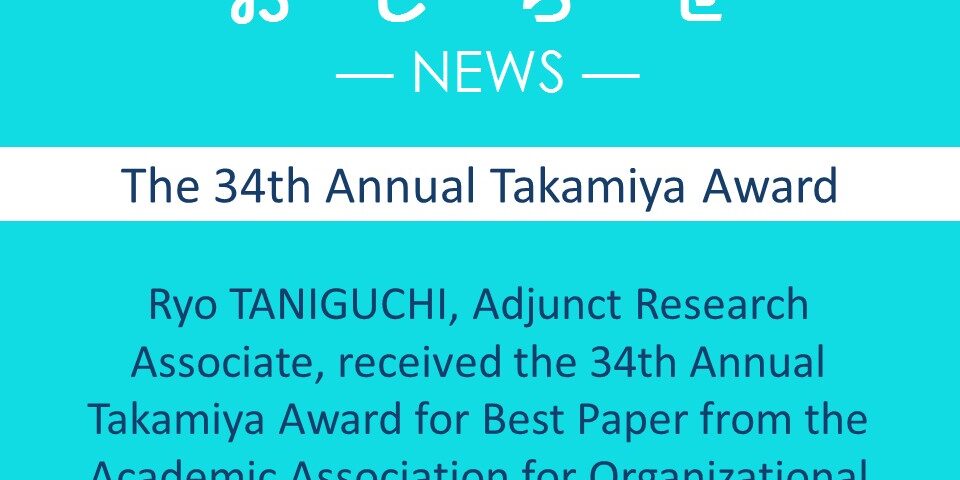Ryo TANIGUCHI, Adjunct Research Associate, received the 34th Annual Takamiya Award for Best Paper from the Academic Association for Organizational Science
Organization:
The Academic Association for Organizational Science
Award:
Takamiya Award for Best Paper
Date:
June 9, 2018
Award Winner:
Adjunct Research Associate Ryo TANIGUCHI
Article Title:
Successful Resource Acquisition-Induced-Resource Allocation Failures: A Case Study of Symbolic Management on “Biomass Nippon Strategy”
Abstract:
Drawing on management literature, this paper examines the shortcomings of contemporary budget allocation procedures in the Japanese government. In order to improve efficiency in utilizing the national budget, the Japanese government has promoted priority-driven budgeting. However, such efforts have often end in failure because the government tends to allocate funds to projects with purposes only loosely connected to prioritized policies. The mass media have called such projects “binjo yosan” (bandwagon projects) and have criticized these uses of the national budget. This paper asks why and how such bandwagon projects emerge. Previous studies of public administration and political science cannot offer sufficient explanations, as they address national budgeting, not budgeting based on specific policies, and bureaucrats’ motivation for acquiring budgetary finances. Launching instead from management literature, such as resource allocation and resource acquisition research, this paper constructs a few theoretical propositions and applies those to the case of “Biomass Nippon Strategy.” The results show that, since priority-driven budgeting defines which policy area budgets will be cut, a prioritized policy attracts projects that actually belong to non-prioritized areas, leading to the emergence of “bandwagon projects.” These findings indicate that a strategy of selection and concentration runs the risk of further dispersion of resources.
http://www.aaos.or.jp/news/dtl?id=691 (In Japanese)
http://www.hakutou.co.jp/book/b307665.html (In Japanese)

